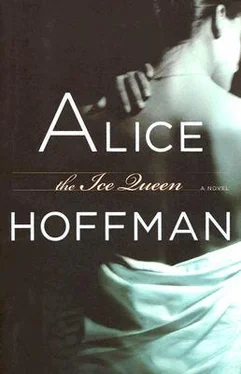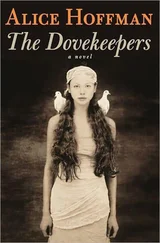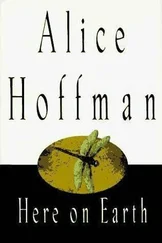In the hospital he saw the dark, branchlike splotches on his arms. All he could think was that he had to get away. When he stood up from the bath, dripping with ice, he heard them gasp at the marking on his back. It was a burn shaped like a face, someone guessed. A wound shaped like a man. But that wasn’t what it was. He knew exactly who he carried: the man to whom he owed a year.
He got dressed and refused any further medical care; he heard those same nurses refer to him as Lazarus. Since he barely remembered his own name, he decided to call himself that as well. What was death like? For him it was a cloud, and he awoke from it clouded still. Where had he been? He had lost himself, and then he was back. If he thought hard, there may have been a battle. He could halfway remember charging through the bath of ice in some way, fighting to come back, slamming down and then arising.
He left the hospital as soon as he could — they had no authority to hold him, he didn’t appear to be a danger to himself or others, and he had a bargain to keep. As soon as he returned to the orchard he found the exact spot where he’d been hit. The hole in the ground. The oranges turned red. And then he noticed it, what he was looking for. A pile of ashes. Lazarus got down on his hands and knees and breathed it in. Sulfur and flesh. His partner had been struck and had burst into flame. This was all that was left, a pile of ash and minerals, this and the face imprinted on his back.
Lazarus swept the ashes into a dustpan, then funneled it all into a wooden box he’d found on the bookshelf. He didn’t once think of leaving; he kept his part of the bargain. Seth Jones had outlived most of his friends, and Lazarus avoided those Jones had known through his business, hiring workers over the phone, doing his banking by mail and phone. Every night he walked through the orchard to the place where the oranges had turned red. He had made a deal for a year; now he was forced to carry his partner forever more. When the anniversary of that day came, he could feel himself wanting to move on. It was in his blood, that’s what he’d discovered. He was never meant to be a settled man. But now he was living another man’s life, trapped by circumstance. When did a promise end? With the sort of guilt Lazarus had, the answer seemed to be never.
Lazarus took me back inside; I followed him to the bookshelves. There was the wooden box, carved in Morocco, a death box, a burden.
“Do you think I killed him?” Lazarus said.
It could have been anyone who delivered the mulch that day, but it was him. Anyone who stomped her feet on the porch, but it was me.
I held the wooden box; it was surprisingly heavy, amazingly so. We carried it out through the orchard; it seemed only right that we take Seth Jones with us now. The darkness was sifting through the trees. We went out to the pond, where Jones had first seen Lazarus, the moment when he thought his wish had come true. We left the wooden box and our clothes in a pile and went wading into the water. It was cool and deep. Nights in Florida weren’t any more comfortable than the days, only wetter, more humid, closing in, throwing you together. I held Lazarus in my arms. It didn’t matter what his name had been; he was Lazarus now. I could feel everywhere he’d been, all those towns, those women, that life. I could feel that he’d made a wish he now regretted, that he’d give anything to have his own shoes back, his own life.
For once in my life I didn’t consider the what had happened or the what would be . None of that. The nowness, the darkness, engulfed us. Two drowning people who loved the feel of water. Kiss me underwater. Kiss me until I’m gone. I could feel a shudder go through Lazarus. How odd to have the truth there with us, right there in the black water, drifting. Hot night, beetles flying low, lightning in the distance.
I was far above myself. Floating in the dark. No fear for once in my life. It was not at all what I’d expected. That fearless moment. Salvation where it didn’t belong.
I could feel Lazarus shivering in my arms. “It’s not your fault,” I told him.
And here’s the thing I would have never believed about words, my own words, spoken aloud, the ones I said to give him comfort, hope, all those things I’d never believed in: They rescued me.
I’d stayed away all weekend and on the way home I worried about Giselle. It was Monday, late in the afternoon, nearing suppertime. The cat would be waiting at the door, desperate to go out; perhaps she’d already ignored her litter box, choosing to defecate in one of my shoes instead, as she often did to vent her anger. I’d left out a huge bowl of food, but my guilt grew by the mile. As I was driving home I thought I heard her mewling, which was impossible.
When I reached the town line, the blue welcome to orlon sign decorated with oranges and palm trees, I thought I heard Giselle screaming. She’d done that once or twice, when she’d spied another cat through the window, some supposed enemy or lover.
It was only a siren I was hearing — I saw the ambulance in my rearview mirror — but the sound had done its work. My irregular heart was pounding against my ribs. I pulled up in front of my house and got out. It was fairly good weather for Florida, almost crisp, no humidity. No storms. None in sight. All the same, the hair stood up on my arms. I could feel something wrong up and down my spine. I was like a human weather vane, only for tragedy. I had that sour taste in my mouth and I hadn’t even made a wish.
I ran up to the door and let Giselle out. She was angry with me, had her haughty expression on, her tail up; she went past me and jumped around in the weeds. She turned her back to me to pee. She was a private creature and I respected that. She held a grudge; I respected that, too.
I wanted to go inside, take a shower, put on some clean clothes, reconsider my life. I thought perhaps I’d discovered the difference between love and obsession. Only one of them puts you in jeopardy. I felt like a gambler who had only just realized how much there was to lose. Everything seemed different. The steps I took, the scratchy weeds against the bare skin of my leg, my cat mewing.
Giselle trotted past me to the door. She had something in her mouth. I hoped it was a bird, not another poor mole. I chased after her. She shook her prey back and forth. It was brown, whatever she’d caught: feathers or fur, I couldn’t tell.
Giselle rubbed back and forth against my legs, then deposited her catch at my feet. No longer angry that I’d been gone so long, proud of herself. She had given me a gift. I suppose she was my pet — and I, her what? Surely not her keeper. Perhaps I was her pet in return. Her little murderess. Her darling dear.
I bent down, cautious. The thing at my feet didn’t seem familiar. And then, it was.
It was a leather glove. When I peered inside I saw flecks of gold.
I ran back across the lawn. I found the other glove under the hedge. It was curled up like something broken, a leaf, a bird, a mole, a heart.
Monday. The day after I was supposed to have met Renny to finish his architecture project. I’d forgotten.
I went into my house, through the living room, into the kitchen. The Doric temple, unfinished. The gloves on the lawn. My irregular heart. My greedy self. My wish that he would disappear.
I heard someone call my name. The voice was unfamiliar. I charged back through the house and saw a young woman on my front porch.
“Hullo,” she called.
I peered through the screen door.
“I had a message from Renny Mills,” the woman said. She was young, blond, wearing jeans and a T-shirt. She looked somewhat familiar.
Читать дальше












